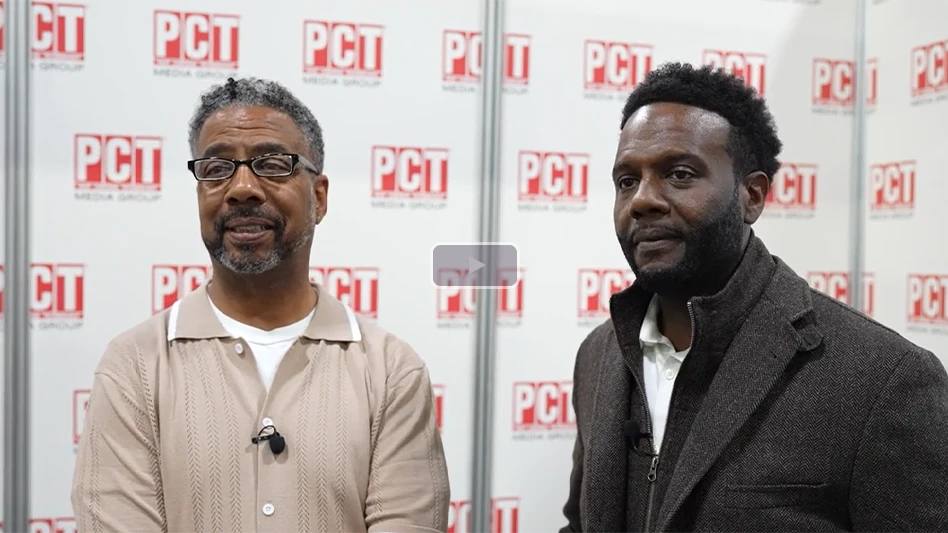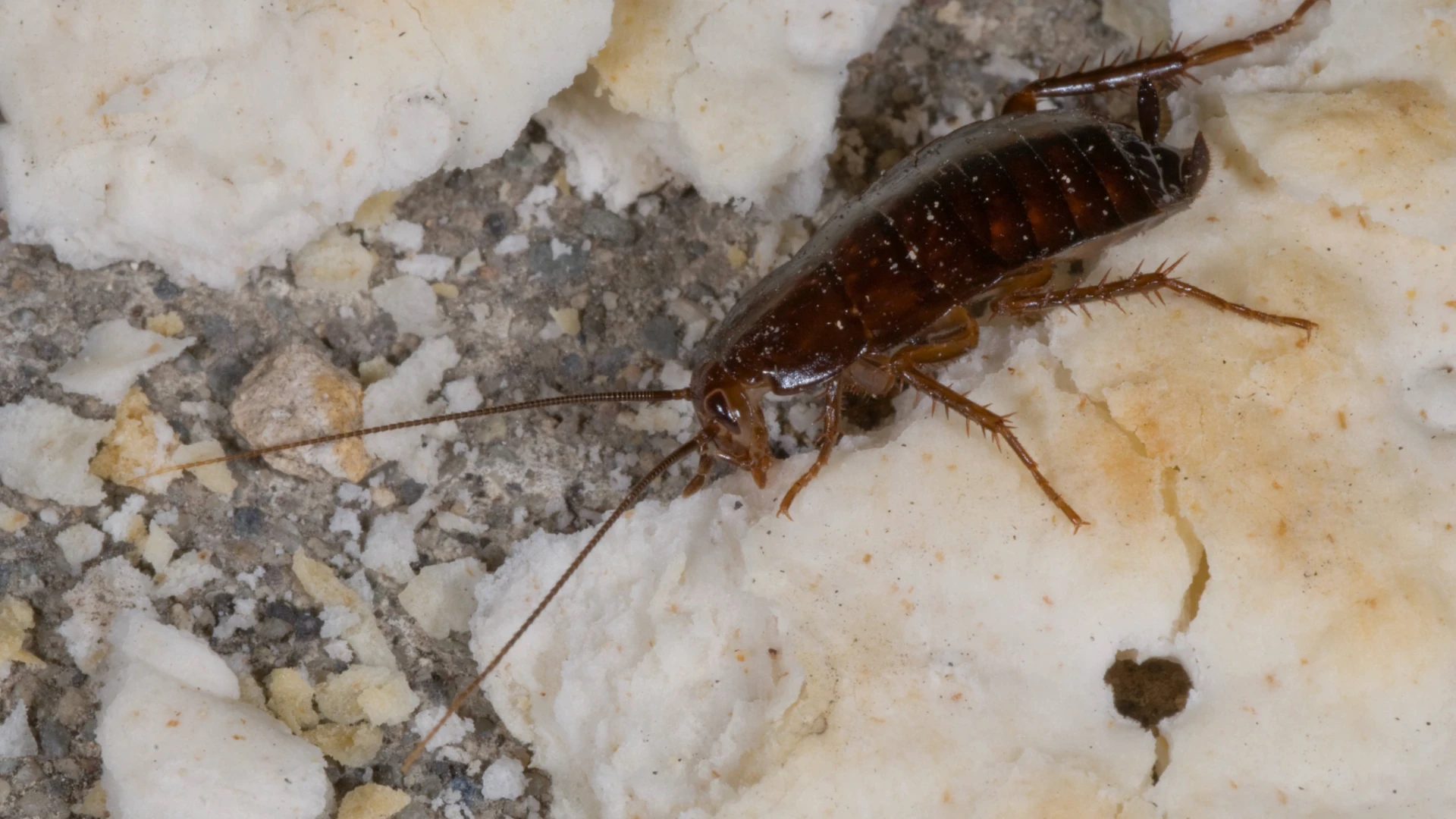It’s a path familiar to many pest control operators. With some degree of real world experience and an insatiable entrepreneurial spirit, an aspiring PCO decides to open his own business. He begins by running one route; his spouse manages the books.
Although perhaps not equipped with all of the necessary technical or management skills, this PCO’s hard work, energy and determination allow him to compensate for certain shortcomings. As a result, his company succeeds, gradually adding new customers, employees and routes. Within a decade, he goes from a one-man operation to a three- to five-person operation generating $500,000 a year in revenues. Now what?
Does he continue to grow his company until it is a multi-million-dollar-a-year business with a large staff and multiple branches? The temptation certainly is there. A bigger company can mean more money for the PCO and it can provide more of the resources needed to offer new products and services. This can allow PCOs to better protect their market position from competitors and help them raise their company’s profile.
But with growth, PCOs encounter new challenges and their existing challenges become magnified. For this reason and others, many pest control firms prefer to remain small. Still, others choose to take that next step and grow to become mid- or large-sized companies. PCT contacted a variety of PCOs to find out what they think are the most important considerations for taking the next step.
LISTEN, LEARN & OBSERVE. The decision to forge ahead and take the steps necessary to grow from a small to a mid- or large-sized business is based on a variety of factors that vary from PCO to PCO. These factors come into focus through company-wide evaluations and market observations.
For example, Gary Smith, owner of Mokihana Pest Control, Kilauea, Hawaii, made a conscious decision to grow his company by observing and anticipating his island’s growth. "In other words, I would hire an existing technician in anticipation that in six months to a year there would be enough work for him," Smith says. "That way the technician would not come in at zero hour, be thrown out in the field and told, ‘You’ve had two weeks training, so go out there and do your thing.’"
Stuart Aust, owner of Bug Doctor, Paramus, N.J., said his company began to take off after it started targeting corporate and government accounts.
"Some of the corporate accounts and government accounts might be slower in pay but we’ve learned that this is where we want to be," Aust says.
Studying your market also will allow you to discover niches. "New Orleans is one of the world’s largest shipping ports, so we got involved in marine fumigation and that has been successful for us," said Jed Caire, president, D A Exterminating, Metairie, La.
Keeping up to date with new products and services is another consideration when planning for growth. For example, D A Exterminating got in on the ground floor of termite baiting. This service offering helped the company land several large accounts.
A PLAN. While the reasons why and when PCOs decide to grow are many, all PCOs who have taken the next step and grown their companies agree that having a plan in place is a must. "My advice to companies wanting to grow is to make sure it is what they want and then plan their actions to achieve it," said Todd Leyse, vice president, Adam’s Pest Control, Hamel, Minn. "Former Adam’s management used to ‘plan’ growth by looking at what growth will mean in terms of revenue, quantity of employees and numbers of trucks, but never truly planned how to get there. When you develop your plan, you can measure it, evaluate it, and develop better plans in the future."
Dick Whitman, president of Whitman Exterminating Co., Beckley, W.Va., said his company experienced its biggest growth spurt after adding its lawn care division — a move that came 15 years after the company was founded. Prior to this venture, Whit-man spent a year evaluating everything from the products and equipment used in lawn care to the turnover rate to pricing and advertising.
"I studied every little niche of that business and I wanted to find an answer for every question," Whitman says. "Then I put a plan together and put a pricing package together. You never overlook the least little thing when you plan like that. That’s been successful for us."
Others agree that slow and steady wins the race. Andy Mannino, owner of AMCO Ranger Pest & Termite Control in St. Charles, Mo., has witnessed companies fail trying to grow too quickly.
"I’ve seen a lot of competitors enter the market who are then gone quickly because they try to grow too fast," he says. "They do a lot of advertising and offer cheap prices, but they don’t have the people in place to deliver the service."
BUSINESS CONCERNS. Targeting potential growth opportunities is critical to future success, but the "business" side of operating a pest management firm, i.e., personnel issues, budgets, planning, etc., is perhaps even more important, some say.
"You need good business sense. You can learn pest management," says Phil Cooper, president, Cooper Pest Control, Lawrenceville, N.J. "You can gain business acumen. I am amazed at how many people don’t take advantage of business classes. It’s not about getting CEU credits — it’s about human resources, hiring, making sure people are happy, growing your people, growing your financials, office staff and routing…that’s what’s important."
So how does someone gain such business knowledge? An important way to learn the ins and outs of the market and plan your growth strategy is by networking. Developing friendships with colleagues can be accomplished by joining a variety of associations.
"They will give you a lot of pearls," Aust says. "Talk to them and learn from their mistakes and successes. A lot of times, learning the hard way — through your own mistakes — costs you money."
In addition, attending conferences and educational sessions, and finding a mentor you can bounce ideas off of are other suggestions offered by a variety of PCOs.
"It is monstrous to have a mentor," Cooper says. "The ability to call and talk to someone when you feel beat up is huge. They can help you through your troubles because they’ve been there too. Find people that you can draw upon and build relationships."
Bernie Holst Jr., president, Horizon Pest Control, Midland Park, N.J., says people are the most important thing it takes to grow your business to the next level. "It is a different kind of investment than what you’re used to making. You’re not investing in equipment, material things or advertising. This is quite a transition in thinking that’s difficult to comprehend for some people, but it must be done."
Adam’s Pest Control’s Leyse concurs. "Unless you are buying out other companies to achieve growth, you have to have motivated people. Motivated people will overcome many of the ‘warts’ associated with growth," he said.
One of the "warts" associated with growth is how the entrepreneurial spirit tends to prohibit owners from letting go. Many entrepreneurs are successful because they run the show. But when a company hits a certain size, the entrepreneur who started it all has to give up some of the day-to-day responsibilities, which may be difficult.
"When you’re a small company you can manage your business off the top of your head," Holst said. "I knew how much money I had in the bank. I had five or six technicians; I knew where they were and what they were doing. As you grow and your staff increases, you must become more organized and delegate responsibility to others. You can no longer track and manage everything yourself."
Phil Cooper agrees. "You have to learn to delegate people at about $1 million but many people don’t understand that. They want it to be the way they’ve always done it. But your employees are never going to do it the way you’re going to do it and you have to be OK with that," he said.
Aust says once his company began growing, he added a quality assurance/quality control supervisor to look after the firm’s top 150 accounts. This person is responsible for follow-up visits to ensure that the accounts are properly serviced and to report to the client findings and recommendations for future services.
Increased overhead expenses are another consideration. For a company to grow, it needs more office space and additional office personnel. Take the accounting department, for example. Say a company needs to hire an accounts receivable person but he or she only is needed six hours a day. If a part-time employee can’t be found, a full-time employee may be the only option. So even though the company doesn’t need that person full time, a decision must be made to hire that person in anticipation of growth — or to make do as is.
"You work harder and earn less because you’re investing in overhead," Cooper said. "Sometimes you have to bite off a little more than you can chew."
Hiring supervisors or managers can be the same way. For example, a supervisor’s pay comes out of the owner’s pocket. "The owner works harder and earns less money," Cooper says. "And the team can be frustrated when they aren’t all together and they think it’s going into the owner’s pocket."
That’s where a financial plan comes in. "Some people will tell you that you have to have a formalized plan but if you have three or four technicians and you, the owner, are out doing work and you come in the office to do your plan, you just took away one-quarter or one-fifth of your company’s manpower," Holst said. "First you have to be profitable to make that type of investment; also, planning may have to be done after hours."
Detailed financial reports are nice, but are they necessary? It depends on the situation. Many say that while it is important for owners to have basic business knowledge about their cash flow and accounts receivables, more elaborate records may not be necessary for smaller firms. There is an exception, however. "If business owners have any notion they might want to sell their business they need to be really in order. They have to think about five years from now," Cooper said. "They absolutely have to have good professionals — legal advisors, accountants, etc. And, they should have some type of accounting system — no shoebox."
CONCLUSION. Of course, not all companies want to take the jump to the next level. And that’s fine. "The larger you get, the more people issues you have and ownership or top management have to be equipped to deal with it. If not, stay small and maximize what you can handle," said Adam’s Pest Control’s Leyse.
Ultimately, how big a PCO wants his company to grow depends on the risks and rewards he associates with owning a large firm. "Some people are very comfortable with a three- to four-person operation. If that’s there where they want to be, they’re successful," Holst said. "It’s all about what you want to achieve. If you want to achieve more growth it requires change."
The authors are Internet editor of www.pctonline.com and editor of PCT magazine, respectively.
PCT’S “40 Under 40” Offer Advice On Getting To That Next Level
In October, PCT named 40 up-and-coming leaders in the pest management industry to its first "40 Under 40" list. In November, PCT hosted an awards ceremony and a roundtable discussion about the future of the industry. PCT Publisher Dan Moreland asked the "40 Under 40" winners about how to make the jump from a small company to the next level. Here’s what they said:
Adam Jones, Vice President, Director of Quality Assurance, Massey Services, Maitland, Fla.
"We had to sit down and focus on what our mission was. We were able to produce a core value system and mission that everyone could understand and achieve. Then we had more consistent performance. We were able to differentiate ourselves in the marketplace in terms of pest prevention — that made us different. I see a lot of smaller companies that drive an hour from the service center before they get to their first customer. If the phone rings they’ll go. For us, the majority of our new business comes from referrals and enhanced route densities — more of a focused growth around current customers. This results in greater profitability."
Jennifer Leggett, President and Owner, Lindsey Pest Control, Jacksonville, Fla.
"You have to focus on the non-fun stuff and the systems your company has in place. You must look at the numbers and watch customer retention — if there is a spike in cancellations you have to find out why. You have to keep your technicians on board because you are only as good as your worst technician. We have the benefits — we have all the things in place that make technicians treat customers well. We want customers who love us and we love them. You can’t lose them while you’re looking at the numbers."
Rick Rupkey II, Vice President, University Termite & Pest Control, Tucson, Ariz.
"You have to focus on the size of your company. People tend to get out this big, broad brush but they spread themselves too thin and fail. You have to identify where you want to grow and zero in and make it happen. For example, you have to decide if you want to grow your termite or lawn or pool business. It’s best to focus on a service or town or neighborhood. Focus is the key."
Kim Kelley-Tunis, Director of Training and Education, McCloud Services, Hoffman Estates, Ill.
"I have a different perspective because we are a company that specializes in food industry pest management. Even though our company is 100 years old, we’ve successfully changed to meet the needs of our customers. McCloud Services has evolved to become the best in one niche. We don’t advertise. We rely on word of mouth reputation."
Eric Melass, Vice President, Killum Pest Control, Lake Jackson, Texas
"I suggest joining the associations. Also, if I traveled to another city ...I’d call a pest control company in the area and ask to go and visit them. I’d pick their brains. I’d ask them what they’re doing and what mistakes they’d learned from. Sometimes there are people in your area who don’t want to share — but you can visit others out of state."

Explore the January 2004 Issue
Check out more from this issue and find your next story to read.
Latest from Pest Control Technology
- Webinar: Maximizing Cash Flow — Key Strategies for Business Growth
- WorkWave Announces Wavelytics
- Rising Rat Populations Linked to Warming Temperatures, Urban Growth, Study Finds
- How Might the 2024 Elections Impact PCOs
- Keeping Track of Termite Identification
- Mosquito Joe Earns EPA's PESP Gold Level Designation
- Texas PestVets Coat Drive Collects Over 850 Items for Soldiers’ Angels
- Conquer Ants Fast!





